Anthony Michael Hall really did cast John Cusack in "Sixteen Candles"
Anthony Michael Hall has spent most of his life in front of the camera, and he has the stories to prove it.
Some of them are downright enviable. He hung out with comedy legends Chevy Chase and John Candy while filming his first starring role in "National Lampoon's Vacation," became the muse of 1980s auteur John Hughes with "The Breakfast Club" and "Sixteen Candles," and was the youngest "Saturday Night Live" cast member ever after joining the show at 17.
But some of them are less so. Hall's 1986 film "Out of Bounds," his attempt at becoming a dramatic leading man, was a flop. He was part of what's regarded as one of the worst "Saturday Night Live" seasons of all time. Hard-partying forced him to step away from Hollywood.
It's enough stories for a lifetime — and all of that happened by his mid-20s.
Now 56 and with the dreaded transition from teen star to adult actor decades behind him, Hall has added many more memorable roles to his credits: he played Bill Gates in the 1999 TV movie "Pirates of Silicon Valley," popped up in Christopher Nolan's "The Dark Knight," and went toe-to-toe with Michael Myers in "Halloween Kills." Soon, he'll add another to the list: a sleazy politician who gets on Jessica Alba's bad side in the Netflix action movie "Trigger Warning," out June 21.
For the latest interview in Business Insider's "Role Play" series, Hall opens up about his partying days, why he turned down the lead role in Stanley Kubrick's "Full Metal Jacket," and his plan to make a "Succession"-like comedy series with his good friend Robert Downey Jr.
On hitting puberty during reshoots of 'National Lampoon's Vacation' and meeting John Candy
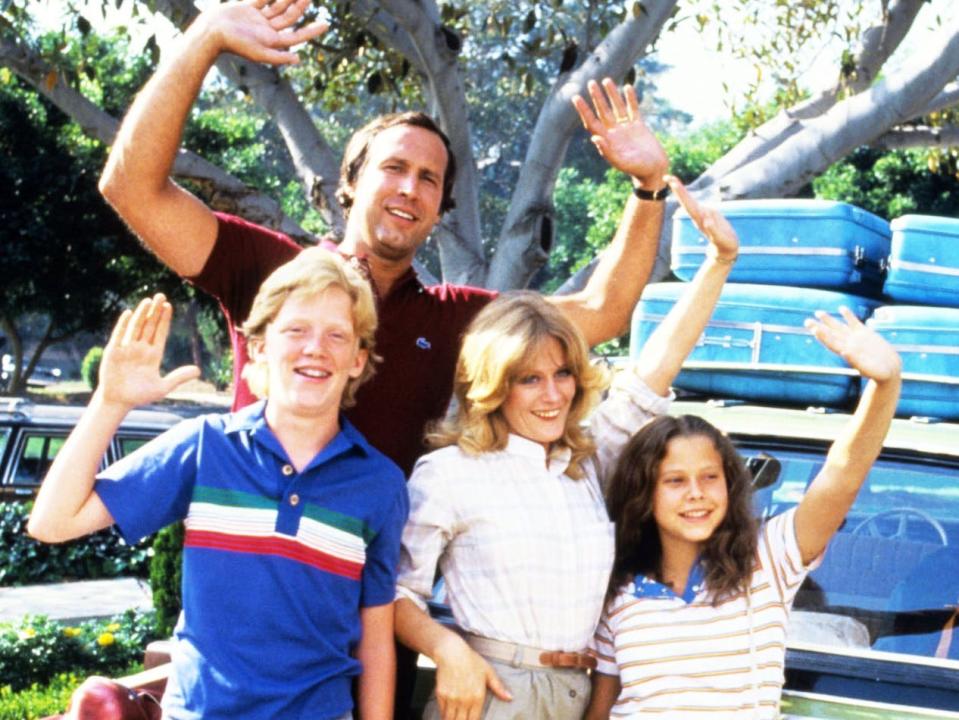
"National Lampoon's Vacation" was your first movie, and the ending was reshot. As a kid, was it strange to do a reshoot?
We did the reshoot for "Vacation" six or nine months later. The funny thing is that puberty had fully kicked in for me. I'm literally seven inches taller. So if you look at the movie closely, you'll see that my hair is darker, and I got taller and skinnier. The first day on set for the reshoot, I see Chevy, and he sees that I have one or two giant pimples, and he goes, "If you're going blind, you're doing it right." He was just messing with me because, seeing how I looked, he guessed I had started masturbating. Chevy was like that.
And the other thing was I learned John Candy was going to be part of the reshoots. I used to watch "SCTV," so I loved him, and one of the sketches he used to do was the Schmenge brothers with Eugene Levy, they were Polish variety show hosts. So I brought that to John's attention, and he said, "We're going to make you an honorary Schmenge, Michael," he would talk to me like his Schmenge character. That's how cool he was. He really was like Uncle Buck.
On doing 10 auditions for 'Sixteen Candles' and casting John Cusack himself
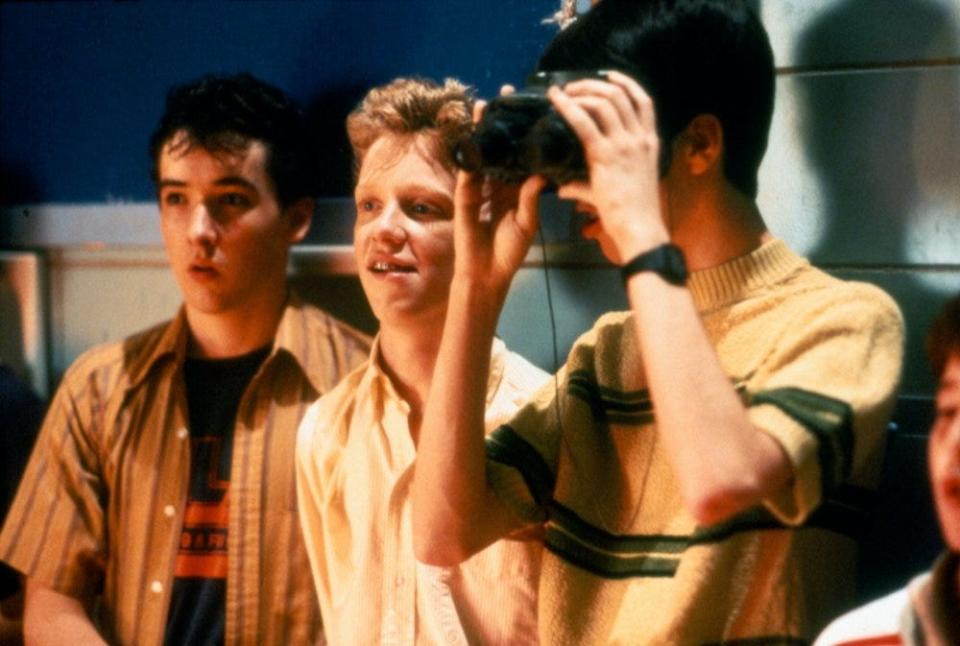
Is it true you did 10 auditions for the Ted role in "Sixteen Candles"?
I think so. It was in that range.
Was John Hughes at all of them?
I believe he was at all of them. As well as Jackie Burch, the casting director. But the thing was that with every successive round of audition, they would add more executives from the studio showing up.
So you would feel good if the room filled up more and more.
Exactly. I felt I was getting closer to landing the job because they kept asking me to come back and do the same scenes, and there would be more and more people.
Do you think you and John clicked through that process, or was it not until filming started?
I think it was actually through the audition. Because I felt like he was rooting for me.
Is it true that you were the one who cast John Cusack for the role of Bryce, one of Ted's geek friends?
Yes. And that was at John Hughes' direction. He literally said that to me one day. He said, "They are going to be your buddies in the movie, so I want you to cast them." I was stunned. I was a 15-year-old kid. I couldn't believe he said that. So I cast John and Darren Harris.
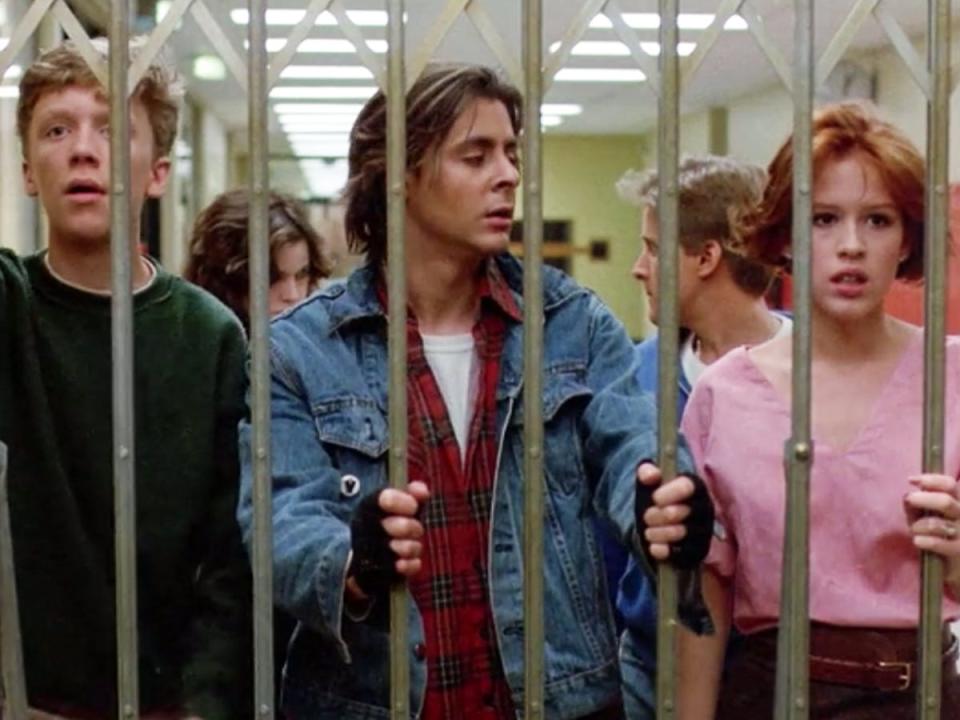
By the time "The Breakfast Club" came out, you were one of the biggest teen stars in Hollywood. What was that like for you?
I was excited and stunned. I think when it started to kick in for me was even before that, it was when we had screenings of "Sixteen Candles." I remember John was doing post-production on "Sixteen Candles," and he wanted to show it to me. I went to the Waldorf Astoria with my father to see John, and he showed it to us on VHS in his beautiful penthouse suite. I remember tripping out because I was watching the movie, and I really laughed and thought it was funny. That marks the beginning of when I felt something was starting for me.
By the time "The Breakfast Club" came around, he had called me at home. This is six or eight months later because he did "Sixteen Candles," "The Breakfast Club," and "Weird Science" consecutively. My parents gave me the phone, and he just told me about the movie and my part, and that's how I got involved with that. We would always call each other and talk over the phone, just as friends.
On wild nights out while making 'Weird Science' and starring on 'SNL' simultaneously

We have to talk about 1984 to 1986 because that is a defining moment in your life and career. You were on "Saturday Night Live" as the youngest cast member ever at 17 years old. You were finishing up "Weird Science," and were looking to do your first dramatic role with "Out of Bounds" after declining to play the lead in Hughes' "Ferris Bueller's Day Off."
You were living in the Chateau Marmont with a giant billboard of "Weird Science" right outside your window. You were flying back to New York weekly for "SNL." And, on either coast, you were partying with the likes of Robert Downey Jr. and Mike Tyson. What the heck was life like for you then?
Dude, it's like you were there the way you just described that! That was startling. No, it was incredible for me. I remember taking a meeting to do "Out of Bounds," and at that point, I felt personally I was riding the crest of these three John Hughes movies, and I was loving it, but part of me wanted to move forward, and that's why I chose that film. It was a chance to step in a new direction after three comedies. And, yes, I was going back and forth to New York to do "SNL" because my deal for the 1985 season was not like the other cast members — I only did like 13 or 14 episodes while everyone else did 20-22. It was a whirlwind.
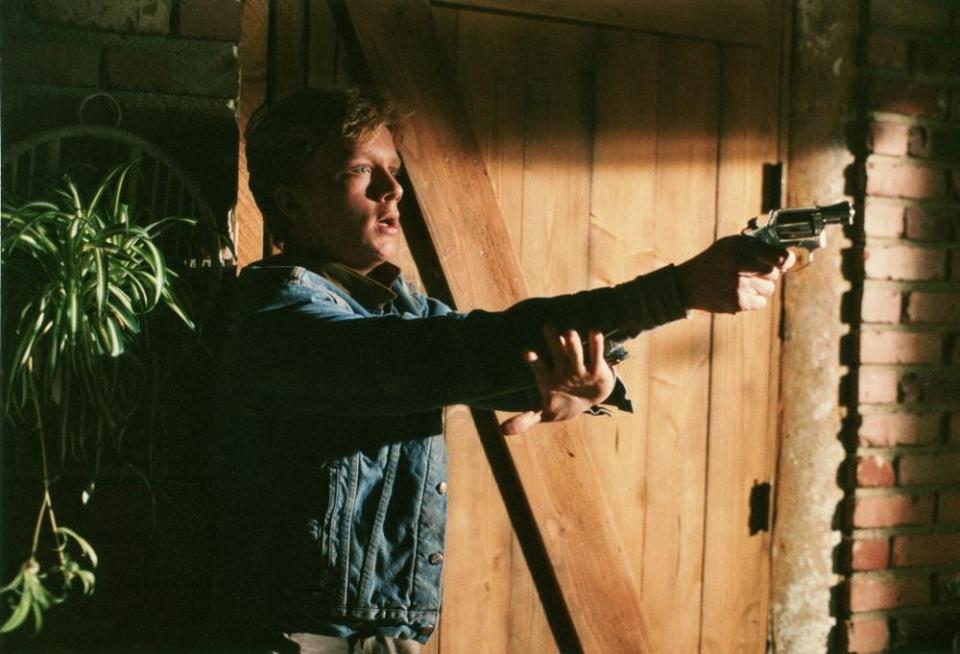
A whirlwind for sure. Looking back, did you burn both ends of the candle?
It was a lot to deal with, absolutely. And we're talking about the age of 15 to 20. I'd done all those films and "SNL," and truthfully, yeah, those were my partying days. I grew up in Manhattan, so it wasn't something I had to reach for. It was always right there. I certainly had my wild nights. But I feel by the time I was in my mid-20s it shifted because I had to reinvest in my craft and take it seriously and rebuild.
On his biggest career regret and working with Tim Burton on 'Edward Scissorhands'
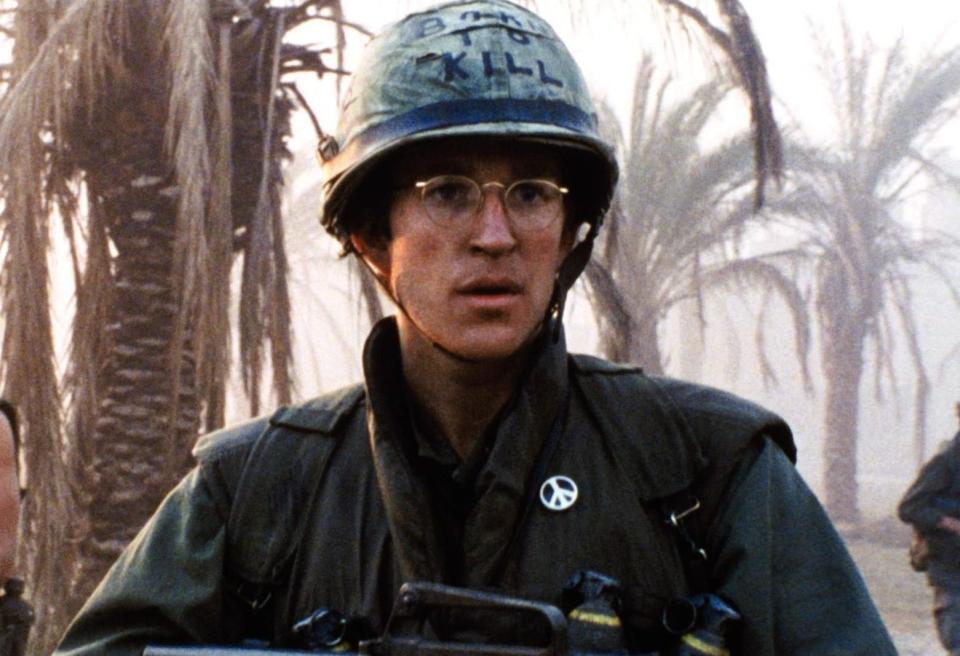
I have to bring up one more thing from this time span: Stanley Kubrick calls you to play the lead in "Full Metal Jacket."
Oh, shit. Yeah.
Is it true that there was a nine-month negotiating period to determine whether you were going to sign on for the role of Joker?
That's right.
But set the record straight, because you have said different things over the years: Did you walk away because of the money being offered, or was it the character and the amount of time you'd have to dedicate to the role?
Here's the thing: I remember I had to go to Kubrick's lawyer's house, who lived in the Bel Air section of Beverly Hills. I was with my father. He escorted me into his kitchen, and I sat down and read a script that was numbered because Kubrick was extremely private, and I read "Full Metal Jacket." But it was such a long and drawn-out process. At one point, I remember the lawyer calling my father, and Kubrick had a question for my father; he wanted to know if he had read a book called "Nuclear Negotiations," because that's how long these talks were going.
But to answer your question, and it's a good one, I think it was about not just the money but what it represented. He really wasn't giving me a legitimate deal. And because I did my research, I knew that I'd be working for a year on that movie. In fact, I happened to run into Matthew Modine a year and a half later, and I asked him, "How long did you guys shoot?" And he was like, "54 weeks."
So it was about the money. We couldn't come to an agreement on the deal and that's ultimately why I walked away. If I have anything close to a regret in my career, it would be not doing that movie. But I'm not a person who lives with regret, so I feel I grew from that experience. And I wound up having a conversation with him after all that.
With Kubrick?
Yeah. It was really interesting. He basically told me he had a lot of budgetary restraints, and I talked to him about that. Unfortunately, it didn't work out, but I was able to have two conversations with the man: at the beginning, when he offered me the role and he talked about his influences like Chaplin and Russian films, and then at the end. The whole thing was an interesting experience.
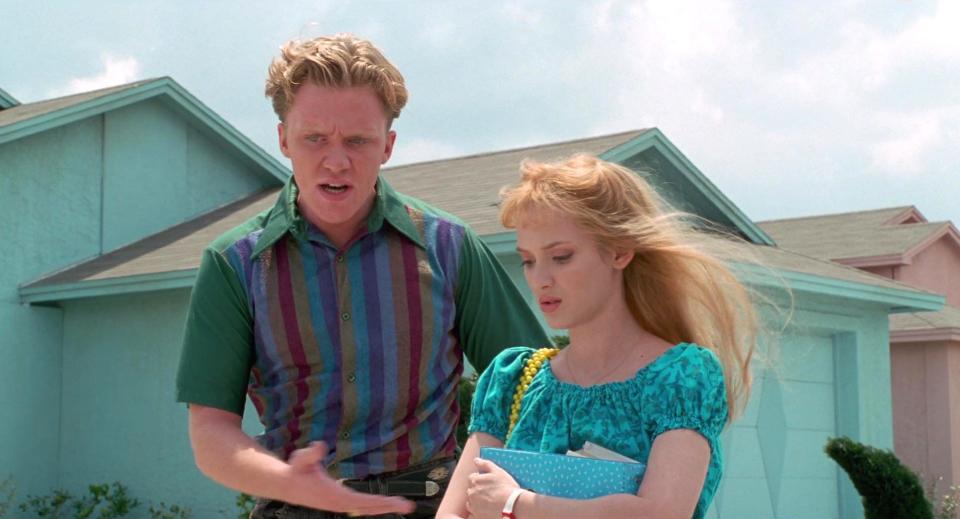
You took some time off after "Out of Bounds" and reemerged as the bully Jim in Tim Burton's "Edward Scissorhands." Was it a confidence boost for you when that movie became a hit?
It totally was. I remember I got a meeting in New York with Tim. I was super stoked to see him. A modern-day Walt Disney. He was super laid back at the meeting. He was soft-spoken and really chill. And I was in my early 20s by then and had another growth spurt, so I think he loved that coming off the John Hughes movies and people knowing me as the geek from those, he thought it would be interesting to cast me in that Jim role. Basically, to go against type.
We shot in the Tampa area. I'll never forget: I went into his office, and he had all the drawings for "The Nightmare Before Christmas" on the wall. So he was thinking about that even though he was in production on "Scissorhands." And he would come so alive once he was on set. He's so calm and reserved, but on set, a switch flips and he comes to life.
On Christopher Nolan's on-set uniform and developing a 'Succession'-like TV series with Robert Downey Jr.
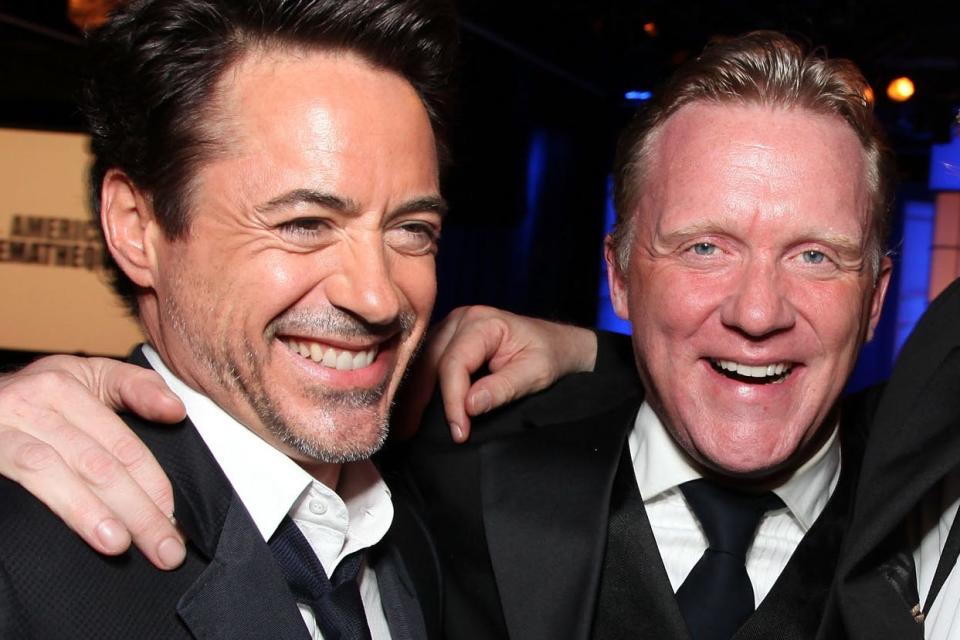
You have worked with many greats. How do you compare Christopher Nolan when you worked with him on "The Dark Night"?
He's up there. Hughes. Burton. Nolan, I love, too. With the scale and the scope of the movie, I always just went with what was on the page; I never tried to improvise. I remember on set, he always wore the same thing: jeans, a vest, and a lengthy jacket. He looked like a conductor. He had a uniform, it seemed. He was kind of like a pied piper because, with every shot, there would be a trail of four or five people behind him.
I heard you and Robert Downey Jr. developing something together.
We are. I can tell you that we are in development; it's been years. We wrote a TV series together, we're calling it "Singularity," and it's based on an idea Downey had. It's taken a while because, at a certain point, we had to change things because it wound up being too similar to "Succession." What I mean by that is I would have played one of three sons, and the father was this tycoon industrialist. It's more of a comedic tone than "Succession," but it mirrored it too much, so we had to change things. Downey and I actually had a Zoom session the other day with a top producer who will hopefully come on board.
Would Downey be on camera alongside you?
He is willing to do that. He might direct the pilot and some other episodes along with being in it.
Would you direct some episodes?
I would love to. This is really Downey's idea, so he's committed to being a part of it.
You've had so many different eras of your career. Is there anything else you still want to try?
Writer-director. I've written something that I really want to make. I would star and direct it. It has been a passion and desire for me to do that for many years now. It's the next evolution in my career, being behind the camera.
This interview has been edited and condensed for clarity.
Read the original article on Business Insider
